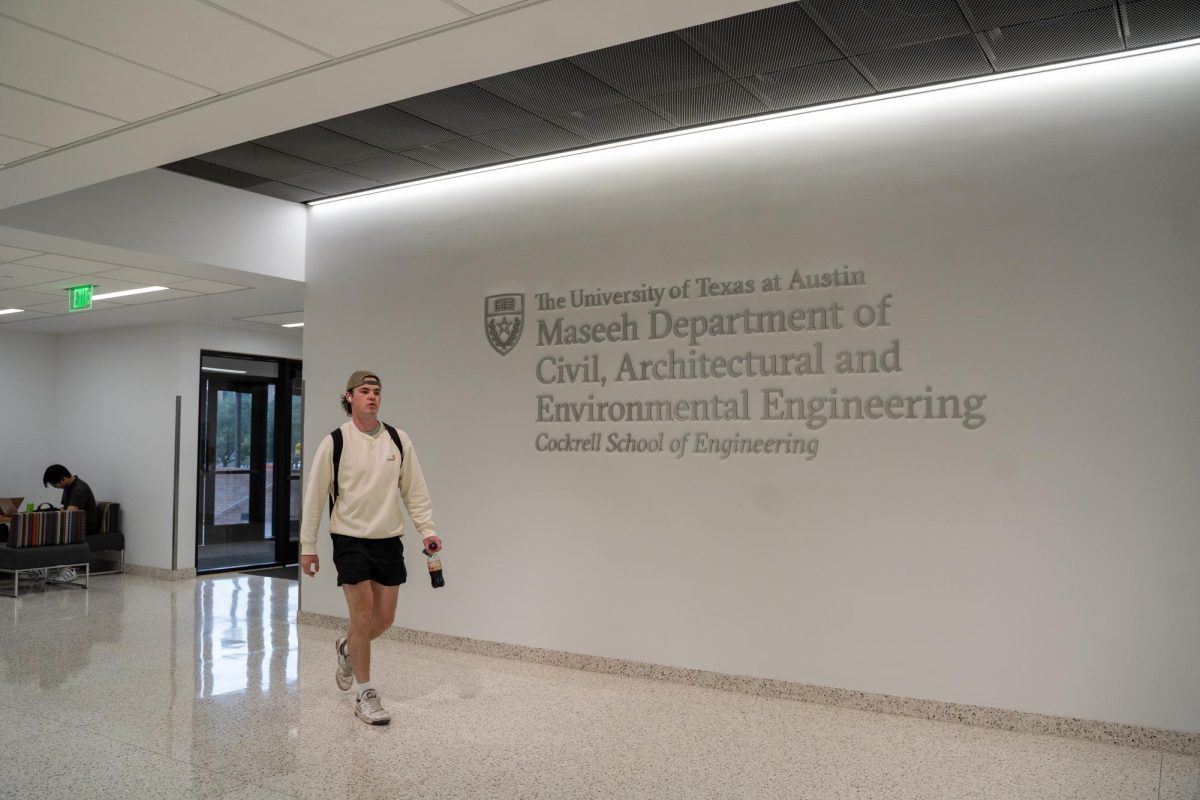The newly retitled Fariborz Maseeh Department of Civil, Architectural and Environmental Engineering which, according to a Sept. 28 press release, will transform the department’s curriculum and research opportunities after receiving an investment from the UT alumnus.
“(This investment) is transformative,” department chair Robert Gilbert said. “It’s much more than just money. We are one of the top departments in the world, and it’s an opportunity for us to use that stature to be a leader in the transformation for our profession.”
According to the press release, the University renamed the Cockrell School of Engineering department to the Fariborz Maseeh Department of Civil, Architectural and Environmental Engineering following Maseeh’s investment. Maseeh, engineer and founder of Surlamer Investments, graduated in 2008 from UT with a master’s degree in civil engineering.
“(Fariborz’s) support will ensure the department’s impact around the world for years to come,” Cockrell School dean Roger Bonnecaze said in the press release. “His support will help the department reshape its curriculum and advance its research.”
Gilbert said Maseeh’s investment will allow the department to train future civil, architectural and environmental engineers to develop new solutions and approaches to infrastructure as issues like climate change and population growth persist.
“This department really owns society’s big, macro issues,” Maseeh said in the press release. “Civil, architectural and environmental engineering will each have a huge impact on the future. That’s what I call the engineering of the big.”
The investment will provide the department with the resources necessary to put together a task force to reimagine and modernize their curriculum, Gilbert said. The department plans on using a portion of the investment to fund innovative research and to renovate their wet labs in their building.
“Our profession is at a crossroads,” Gilbert said. “We’re the ones that need to figure out how to provide civilization for eight billion people. Our curriculum needs to adapt to produce students who are going to be prepared to go out and solve these problems.”
Gilbert said the task force will have its first official meeting Oct. 13 to start discussion on transforming the department to fit the needs for the future workforce and ensure students, faculty, alumni and industry professionals have input in the changes.
“It’s going to be a different world — that’s why it’s exciting,” Gilbert said. “We don’t know what it’s going to look like, (but) we know that the way we’re doing things right now doesn’t sustain itself for much longer. Things are going to change dramatically, and we have the opportunity to be a leader in figuring out how to make that change for the future.”





















